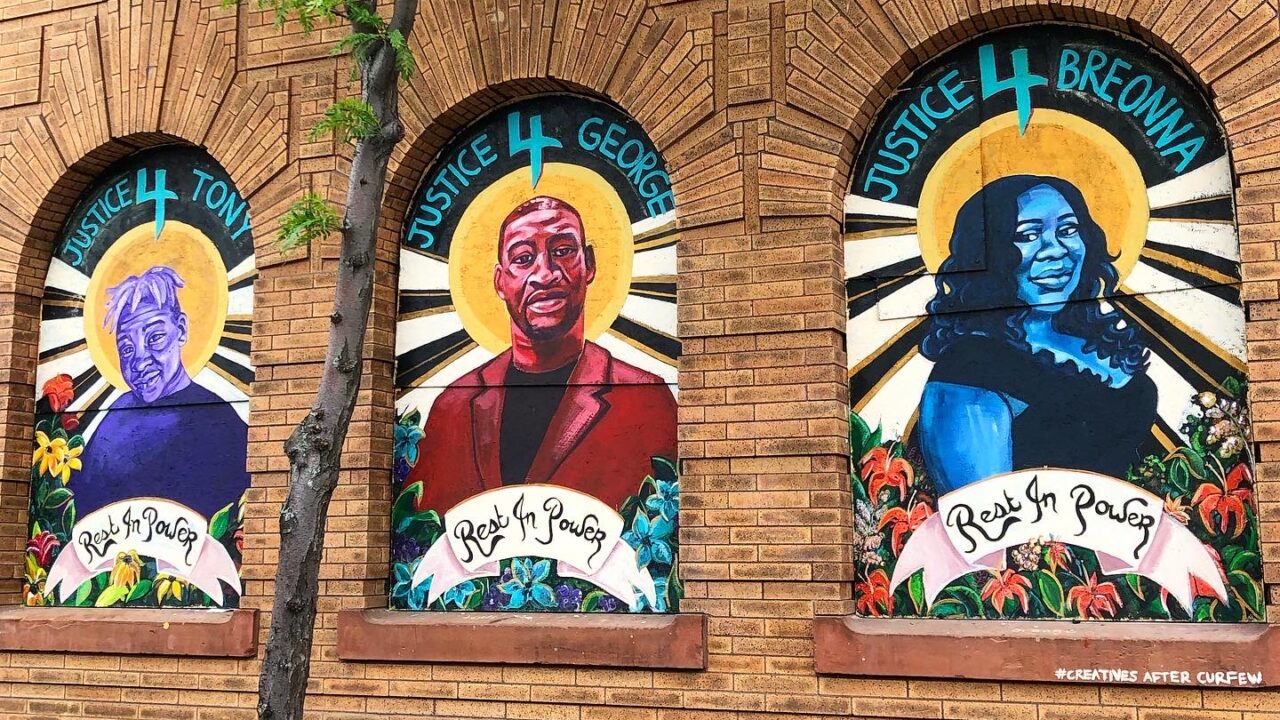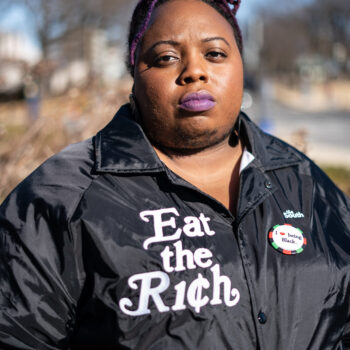Three years after the uprising, Makia Green, a co-founder of Defund MPD & Harriet’s Wildest Dreams, offers a stirring reflection on the profound challenges and real achievements realized by the modern abolitionist movement. Makia calls for unwavering investment and solidarity in the pursuit of community-led safety and true freedom.
Collectively, we led the largest protest movement in US history. We were able to do this in spite of the fact that many elected officials, celebrities, and advocates undermined and defamed abolitionist activism and demands. Democrat leaders groaned that our demand did not poll well with voters as excuses to align with the anti-safety and pro-police right. They did not consider how our opponents launched a highly funded and targeted campaign to misinform voters about community-led safety and the Black Lives Matter movement. As elected leaders buckled to right-wing scare tactics, what did it win them? Ultimately, activists trusted them less, and right-wing media still calls them “WOKE” while actively working to disenfranchise Democratic voters across the country.
Meanwhile, Abolitionists did not waver; we threw everything into the 2020 Uprising and gave way to the current boom in alternative and community-led safety. We reemphasized why investing in a safe future was always central to the Defund Police demand. Since 2020, many cities have strengthened or piloted community violence intervention (CVI) and racial equity programs and implemented various police reforms. When the Justice in Policing Act failed, President Biden marginally invested in CVI and police reform because the movement pointed the needle at Abolition. We changed what was politically possible because we weren’t afraid to demand what we deserved.
The anti-safety, pro-police machine spent millions on lobbying and persuading voters to withdraw support of abolitionist solutions, and although they convinced a large portion of voters to support continued funding of police, what the data also shows is that Black voters know that policing is not a solution to the harm we face in our neighborhoods. Black voters are begging for an alternative they can trust.
Here in DC, we are already seeing what those alternatives can look like. In 2021, DC began re-routing emergency mental health calls to a mobile crisis team. That program is still running, and there is a diverse coalition, DC Crisis Response, proposing a vision for strengthening and transforming mental health crisis response for the district. DC also overhauled its century-old criminal code and passed numerous decriminalization, decarceration, and divestment reforms bringing us closer to our goals. But DC is also a place where we see how systems of injustice overlap. Because DC lacks statehood, Congress overturned our hard-won Revised Criminal Code and now threatens other aspects of our safety here. So we fight to safeguard the future of our justice policy wins with the Hands Off DC Coalition.
Alternatives to policing campaigns pre-date the 2020 Uprising but we welcome the new energy and supporters with open arms. Some of the campaigns I’m learning from are based in Chicago. The Treatment Not Trauma coalition launched a winning referendum for a public mental health infrastructure model that would include city-run centers and a 24-hour crisis response hotline to dispatch mental health workers instead of police officers. Alongside that work is Ujimaa Medics, a community-founded organization that offers urban emergency first-response training throughout Chicago. This longtime organizing inspired the boom in city-funded Stop the Bleed trainings, and hundreds of kits are now being delivered throughout Chicago. As we build these programs, we practice millions of experiments identifying the structures and processes that will keep us safe. Whether you are in a big urban city or a rural town, we can align around experimenting to build the non-police alternatives we deserve.
As we build these programs to meet the needs of millions. Movement leaders must set our sights on deepening and strengthening public infrastructure for safety beyond police. We cannot accept proposals where these programs are funded with only private and temporary funding. We also shouldn’t support programs funded by discriminatory fines or cuts to social housing, public education, affirmative action, or student debt relief. Our movement deserves the same level of massive, dedicated public funding that current systems have had for more than a century.
This shift is already happening, in large part because of the activists and leaders dedicating their lives and careers to making it happen. If we wish to win in the long-run, we need to continue making their work possible. In 2020, our movement saw the most significant influx of resources ever. Those resources helped grow strong teams, deepen skills, solidify movement infrastructure, and win real victories. As we look ahead, I call on our movement and our philanthropy partners to sustain this investment at the scale it will take to win. Our opposition has a long-term vision and so must we. We will walk into 2024 fighting for abolitionist safety and freedom by every means necessary.
Written by Makia Green, Co-Founder of Defund MPD & Harriet’s Wildest Dreams.

